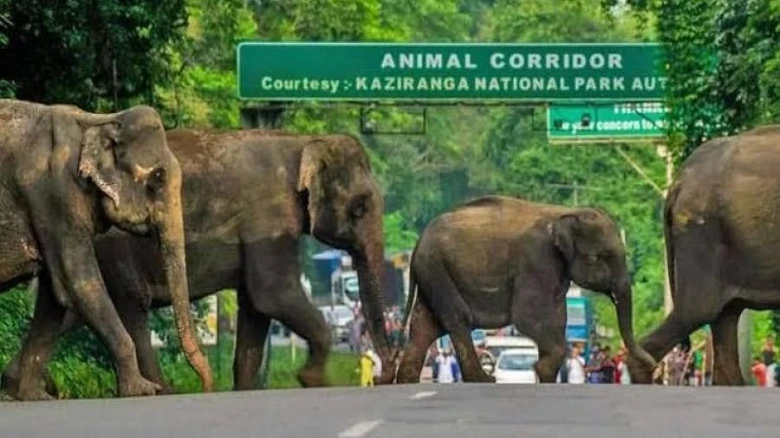These systems, designed to mitigate the impact of road traffic on Kaziranga National Park & Tiger Reserve's diverse fauna...
Digital Desk: On National Highway-37, the implementation of animal detection systems faces formidable challenges, compromising their efficacy in preventing collisions between wildlife and vehicles, claims RTI activist Rohit Choudhury.
These systems, designed to mitigate the impact of road traffic on Kaziranga National Park & Tiger Reserve's diverse fauna, grapple with environmental factors and technological limitations.
In a missive addressed to the Union Minister of Environment, Forests & Climate Change, Rohit Choudhury highlights a disconcerting revelation: animal sensors function sporadically, particularly during VVIP visits to Kaziranga. Moreover, sensor cameras strategically positioned at the Kanchanjuri corridor (Maloni) were inexplicably removed by park authorities, leaving a critical wildlife thoroughfare vulnerable.
Choudhury's plea to the Union Minister underscores the urgency of reactivating the sensor cameras on the Kanchanjuri corridor and ensuring the seamless operation of others.
The alleged malfunctioning of these crucial surveillance tools has set off alarm bells among conservationists and activists alike. The absence of functional speed checks elevates the risk of road accidents involving prized species such as Indian rhinoceroses, tigers, Asian elephants, wild water buffaloes, and various deer species inhabiting the park.
Kaziranga, harbouring the world's largest population of one-horned rhinoceroses and providing refuge to globally threatened species, stands at a critical juncture. Environmental activists, notably Rohit Choudhury, lambast the forest department for tardy repairs and demand accountability for potential wildlife losses due to speeding vehicles.
The National Green Tribunal's prior directive mandating camera installations underscores the legal and environmental imperative to safeguard Kaziranga's fauna.
With the tourist season in full swing from November to April, the imperative to promptly address the malfunctioning speed-check cameras intensifies.
The safety of the resident animals and the preservation of Kaziranga's delicate ecosystem hinge on the swift resolution of these issues, compelling stakeholders to prioritize the restoration of the vital animal detection systems on National Highway 37.

Leave A Comment